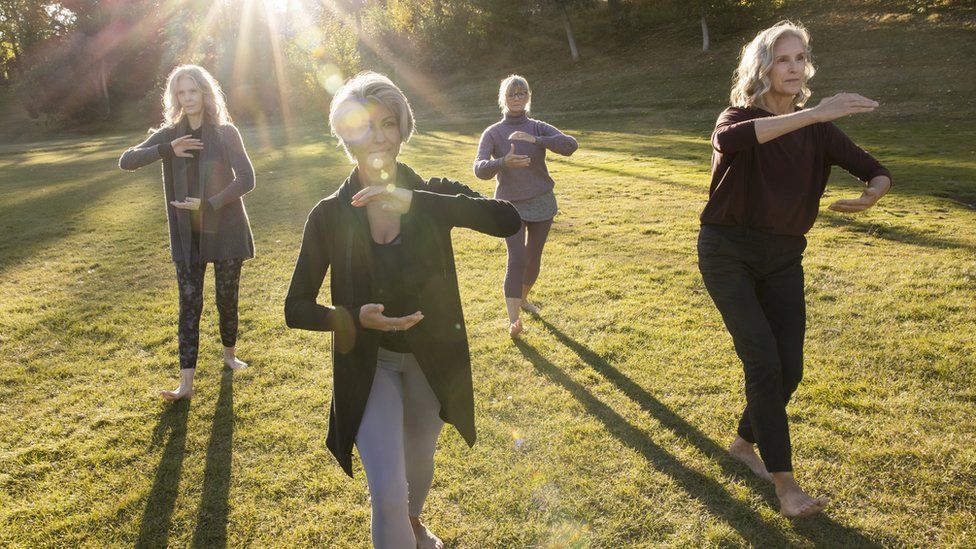-

-
-
Loading

Loading

A study from Shanghai Jiao Tong University School of Medicine suggests that practising tai chi may help slow down the symptoms of Parkinson's disease for several years. The researchers found that those who engaged in tai chi twice a week experienced fewer complications and had a better quality of life compared to those who did not. Parkinson's is a progressive brain disease that causes tremors and slow movement, and currently, there is no cure. This study supports previous research on the benefits of exercise for Parkinson's patients. The study monitored the health of hundreds of Parkinson's patients for up to five years, with one group practising regular tai chi and another group not participating in any exercise. Tai chi is a traditional Chinese exercise that combines slow movements with deep breathing and relaxation. Parkinson's UK describes tai chi as a low-intensity physical activity that can improve mood and overall well-being. The study found that the participants in the tai chi group experienced slower disease progression, improved movement and balance, fewer falls, less pain and dizziness, and better memory and concentration. Additionally, their sleep and quality of life continuously improved. Another trial showed that participants who practised tai chi for six months had greater improvements in walking, posture, and balance compared to those who did not engage in the activity. The researchers suggest that tai chi could be used as a long-term management strategy for Parkinson's disease to prolong quality of life and keep patients active. However, they acknowledge that the study is relatively small and cannot definitively prove that tai chi was the sole reason for the positive outcomes. Experts caution that it is too early to claim neuroprotection benefits from tai chi but acknowledge its impressive effects on both motor and non-motor functions. They believe that more trials are necessary to fully understand the benefits of different forms of exercise, including tai chi, for the management of Parkinson's disease.